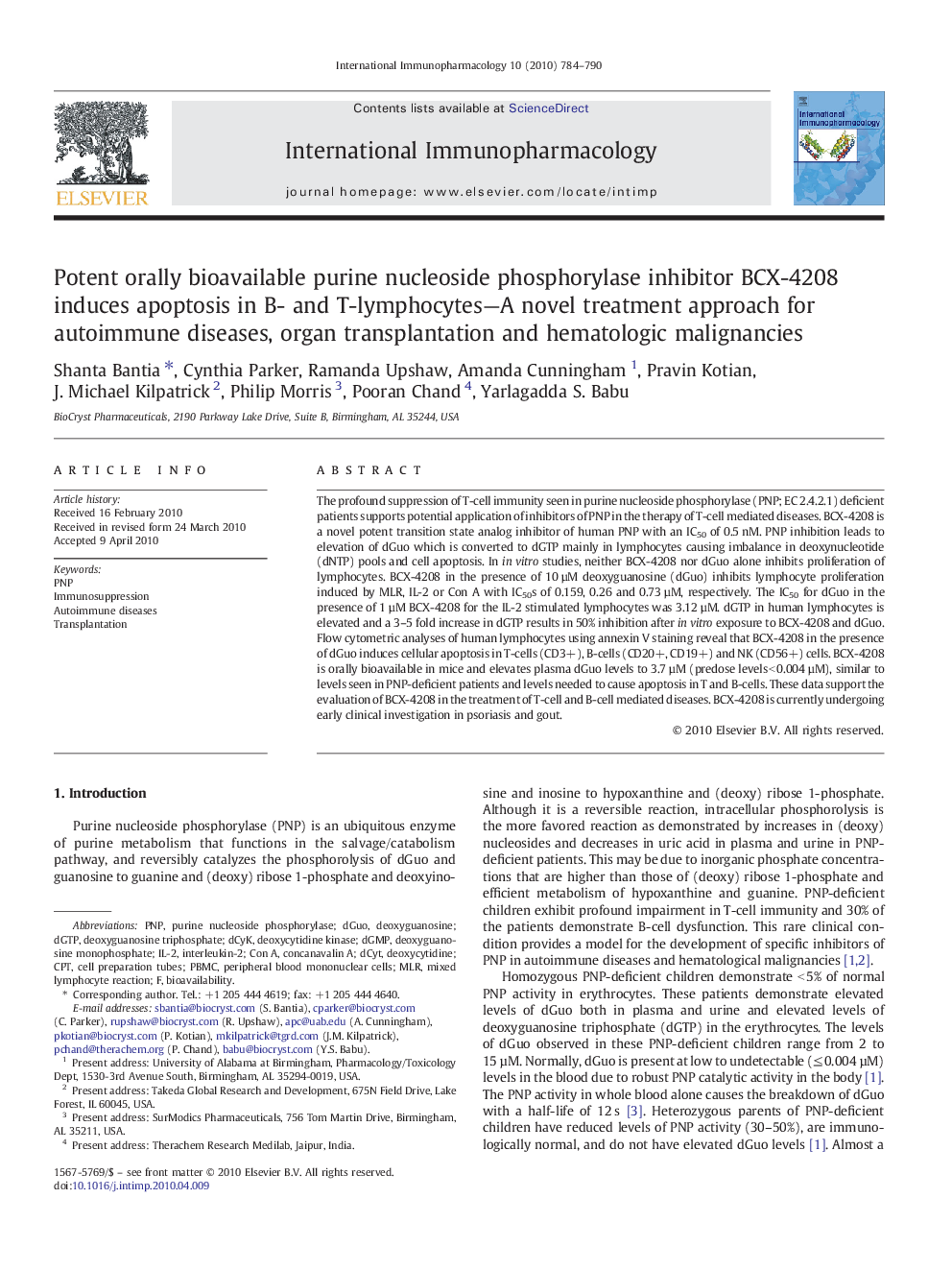| Article ID | Journal | Published Year | Pages | File Type |
|---|---|---|---|---|
| 2541458 | International Immunopharmacology | 2010 | 7 Pages |
The profound suppression of T-cell immunity seen in purine nucleoside phosphorylase (PNP; EC 2.4.2.1) deficient patients supports potential application of inhibitors of PNP in the therapy of T-cell mediated diseases. BCX-4208 is a novel potent transition state analog inhibitor of human PNP with an IC50 of 0.5 nM. PNP inhibition leads to elevation of dGuo which is converted to dGTP mainly in lymphocytes causing imbalance in deoxynucleotide (dNTP) pools and cell apoptosis. In in vitro studies, neither BCX-4208 nor dGuo alone inhibits proliferation of lymphocytes. BCX-4208 in the presence of 10 µM deoxyguanosine (dGuo) inhibits lymphocyte proliferation induced by MLR, IL-2 or Con A with IC50s of 0.159, 0.26 and 0.73 µM, respectively. The IC50 for dGuo in the presence of 1 µM BCX-4208 for the IL-2 stimulated lymphocytes was 3.12 µM. dGTP in human lymphocytes is elevated and a 3–5 fold increase in dGTP results in 50% inhibition after in vitro exposure to BCX-4208 and dGuo. Flow cytometric analyses of human lymphocytes using annexin V staining reveal that BCX-4208 in the presence of dGuo induces cellular apoptosis in T-cells (CD3+), B-cells (CD20+, CD19+) and NK (CD56+) cells. BCX-4208 is orally bioavailable in mice and elevates plasma dGuo levels to 3.7 µM (predose levels < 0.004 µM), similar to levels seen in PNP-deficient patients and levels needed to cause apoptosis in T and B-cells. These data support the evaluation of BCX-4208 in the treatment of T-cell and B-cell mediated diseases. BCX-4208 is currently undergoing early clinical investigation in psoriasis and gout.
